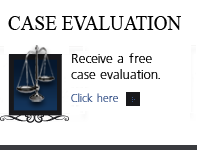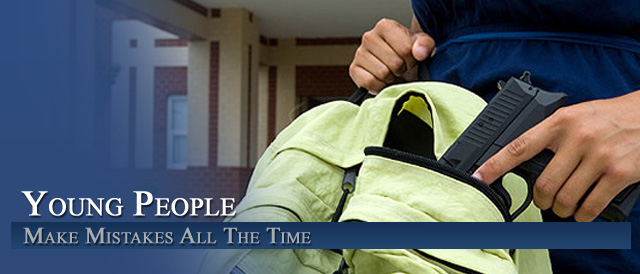
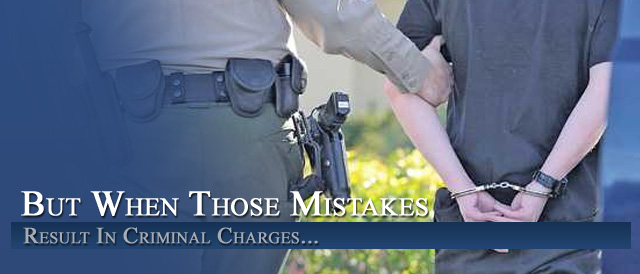
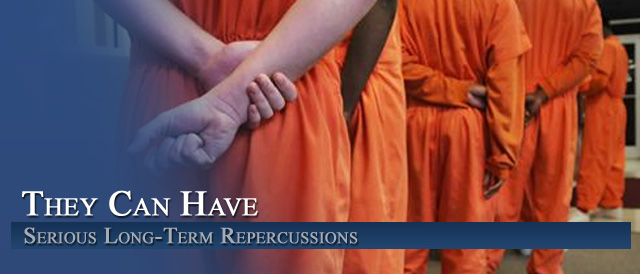
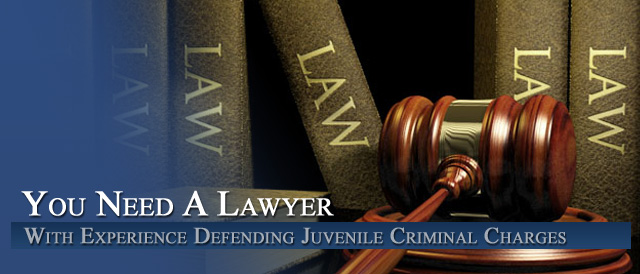
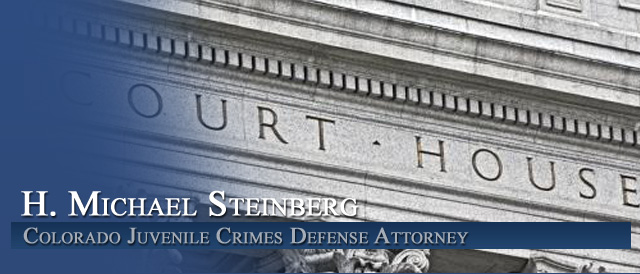
Probation – Terms – Release – Revocation 19-2-925
As a former Senior – Career Arapahoe – Douglas County District Attorney -in his13 years (1984 – 1997) years as a prosecutor – H. Michael was assigned to the prosecution of hundreds of juvenile prosecutions. As a Colorado Criminal Defense Lawyer for the last 16 years (1997 – 2013) – he has successfully handled hundreds more juvenile cases.
Juvenile criminal defense lawyers must be specialized in this area and must have specialized training and experience to be effective on behalf of their clients… essentially just children. Because Juvenile Court is different than adult court – an experienced lawyer in adult may be incompetent to practice in juvenile court.
Where your child’s freedom and future is at stake…go with experience every time.
Here is the statute referenced in the Article That Linked you to this page:
19-2-925. Probation – terms – release – revocation
(1) (a) The terms and conditions of probation shall be specified by rules or orders of the court. The court, as a condition of probation for a juvenile who is ten years of age or older but less than eighteen years of age on the date of the sentencing hearing, may impose a commitment or detention. The aggregate length of any such commitment or detention, whether continuous or at designated intervals, shall not exceed forty-five days; except that such limit shall not apply to any placement out of the home through a county department of social services. Each juvenile placed on probation shall be given a written statement of the terms and conditions of his or her probation and shall have such terms and conditions fully explained to him or her.
(b) The court, as a condition of probation for a juvenile eighteen years of age or older at the time of sentencing for delinquent acts committed prior to his or her eighteenth birthday, may impose as a condition of probation a sentence to the county jail that shall not exceed ninety days; except that such sentence may be for a period of up to one hundred eighty days if the court orders the juvenile released for school attendance, job training, or employment.
(2) The court shall, as minimum conditions of probation, order that the juvenile:
(a) Not violate any federal or state statutes, municipal ordinances, or orders of the court;
(b) Not consume or possess any alcohol or use any controlled substance without a prescription;
(c) Not use or possess a firearm, a dangerous or illegal weapon, or an explosive or incendiary device, unless granted written permission by the court or probation officer;
(d) Attend school or an educational program or work regularly at suitable employment, and, if the juvenile has an individualized education program pursuant to section 22-20-108, C.R.S., the court may order the juvenile to comply with his or her individualized education program, taking into account the intellectual functioning, adaptive behavior, and emotional behaviors associated with the juvenile’s disabilities, and subject to a manifestation determination pursuant to section 22-33-106 (1) (c), C.R.S.; except that the court shall not require any such juvenile to attend a school from which he or she has been expelled without the prior approval of that school’s local board of education;
(e) Report to a probation officer at reasonable times as directed by the court or probation officer;
(f) Permit the probation officer to visit the juvenile at reasonable times at his or her home or elsewhere;
(g) Remain within the jurisdiction of the court, unless granted permission to leave by the court or the probation officer;
(h) Answer all reasonable inquiries by the probation officer and promptly notify the probation officer of any change in address or employment;
(i) Make restitution as ordered by the court;
(j) Pay the victim compensation fee as ordered by the court;
(k) Pay the surcharge levied pursuant to section 24-4.2-104 (1) (a) (I), C.R.S.; and
(l) May be evaluated to determine whether the juvenile would be suitable for restorative justice practices that would be a part of the juvenile’s probation program; except that the court may not order participation in restorative justice practices if the juvenile was adjudicated a delinquent for unlawful sexual behavior as defined in section 16-22-102 (9), C.R.S., a crime in which the underlying factual basis involves domestic violence as defined in section 18-6-800.3 (1), C.R.S., stalking as defined in section 18-3-602, C.R.S., or violation of a protection order as defined in section18-6-803.5, C.R.S.
(3) (a) The court may periodically review the terms and conditions of probation and the progress of each juvenile placed on probation. Counsel for the juvenile does not have to be present at any probation review hearing unless notified by the court that a petition to revoke probation has been filed.
(b) The court may release a juvenile from probation or modify the terms and conditions of his or her probation at any time, but any juvenile who has complied satisfactorily with the terms and conditions of his or her probation for a period of two years shall be released from probation, and the jurisdiction of the court shall be terminated.
(4) (a) When it is alleged that a juvenile has violated the terms and conditions of his or her probation, the court shall set a hearing on the alleged violation and shall give notice to the juvenile and his or her parents, guardian, or other legal custodian and any other parties to the proceeding as provided in section 19-2-514.
(b) The juvenile and his or her parents, guardian, or other legal custodian shall be given a written statement concerning the alleged violation and shall have the right to be represented by counsel at the hearing and shall be entitled to the issuance of compulsory process for the attendance of witnesses.
(c) When the juvenile has been taken into custody because of the alleged violation, the provisions of sections 19-2-507 and 19-2-508 shall apply.
(d) (I) The hearing on the alleged violation shall be conducted as provided in section 19-1-106.
(II) Subject to the provisions of section 19-2-907, if the court finds that the juvenile violated the terms and conditions of probation, it may modify the terms and conditions of probation, revoke probation, or take such other action permitted by this article that is in the best interest of the juvenile and the public.
(III) If the court finds that the juvenile did not violate the terms and conditions of his or her probation as alleged, it shall dismiss the proceedings and continue the juvenile on probation under the terms and conditions previously prescribed.
(e) If the court revokes the probation of a person over eighteen years of age, in addition to other action permitted by this article, the court may sentence him or her to the county jail for a period not to exceed one hundred eighty days during which time he or she may be released during the day for school attendance, job training, or employment, as ordered by the court; except that, if the sentence imposed exceeds ninety days, the court shall order the person released for school attendance, job training, or employment while serving his or her sentence.
(5) Following specification of the terms and conditions of probation, where the conditions of probation include requiring the juvenile to attend school, the court shall notify the school district in which the juvenile is enrolled of such requirement.
Other Articles of Interest:
- Juvenile Probation Officers – Powers and Duties 19-2-926
- Aggravated Juvenile Offender 19-2-601
- Deferral of Adjudication 19-2-709
- Parole Violation and Revocation 19- 2-1004
- The Colorado Juvenile Criminal Sentencing Hearing – Part I of III


